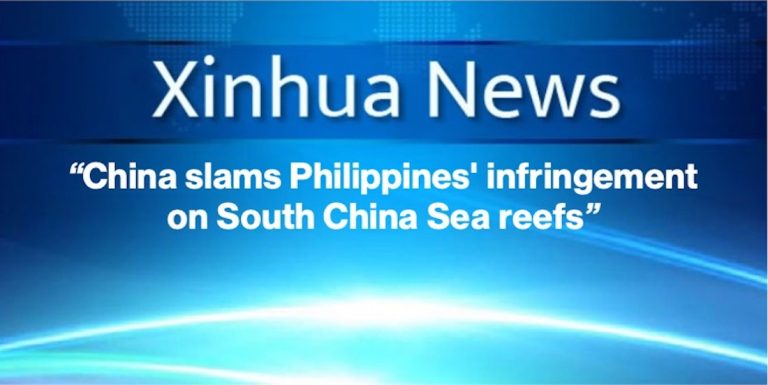
China’s Territorial Claims Ignore Philippines’ Sovereign Rights, International Law, and Global Maritime Standards
By the Staff of The Stewardship Report: Let the truth-telling begin
New York, N.Y. – In the latest escalation of South China Sea tensions, China’s Coast Guard has again demonstrated its disregard for international maritime law by aggressively confronting Philippine vessels operating within Philippines’ legitimate territorial waters.
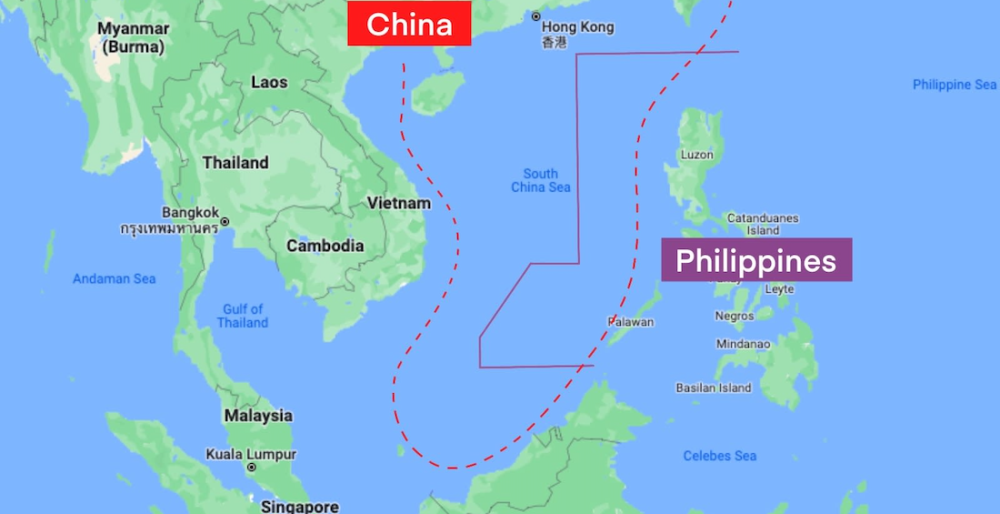
While Beijing frames its actions as defending “indisputable sovereignty,” the reality reveals a pattern of maritime aggression that threatens regional stability and violates established international legal frameworks.
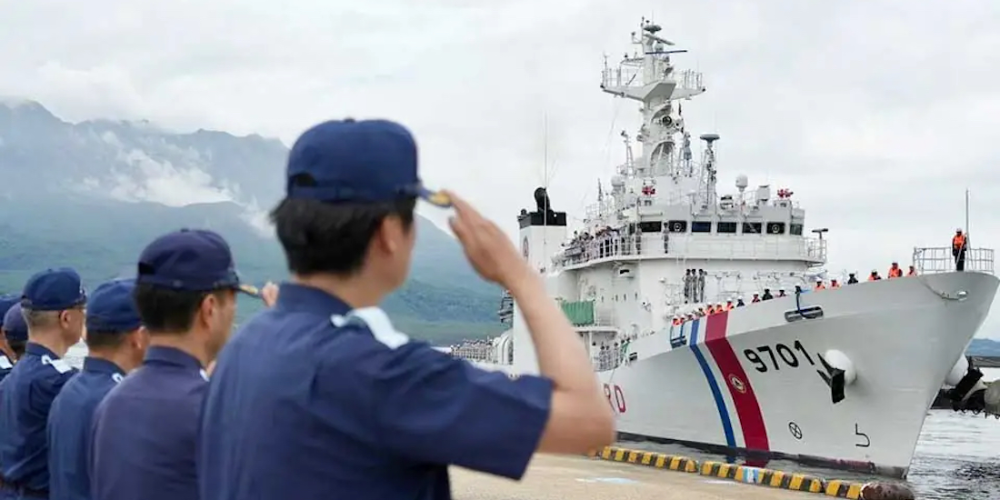

Who: Philippines Defending Legitimate Maritime Rights
The incident involves two Philippine official vessels conducting lawful activities near Zhubi Jiao and Tiexian Jiao – areas that fall within Philippines’ Exclusive Economic Zone (EEZ) as defined by the United Nations Convention on the Law of the Sea (UNCLOS).
These are not random fishing boats or civilian vessels, but official government ships exercising Philippines’ sovereign rights in waters internationally recognized as falling under Manila’s jurisdiction.
China’s Coast Guard response – including landing personnel on the reef and causing a collision with a Philippine vessel – represents an escalation of Beijing’s campaign to unilaterally control vast swaths of the South China Sea through intimidation and force.
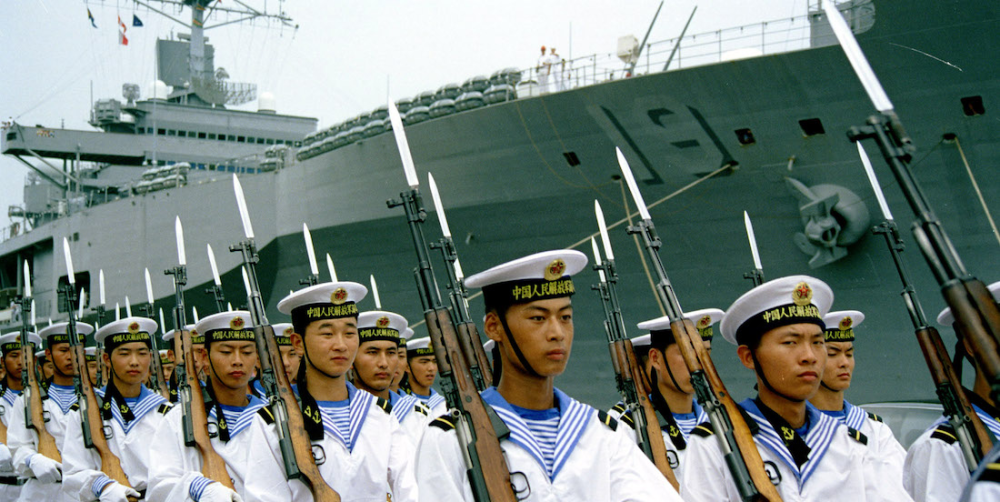
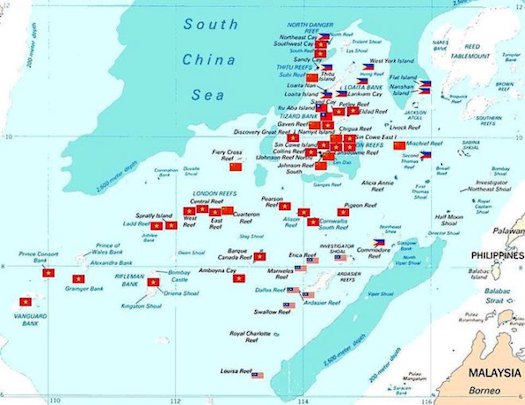
What: Illegal Occupation Disguised as Law Enforcement
China’s characterization of Philippine activities as “illegal” fundamentally misrepresents international maritime law.
The 2016 arbitral tribunal ruling under UNCLOS explicitly rejected China’s expansive “nine-dash line” claims, determining that Beijing has no legal basis for asserting historic rights over waters within other nations’ EEZs.
The Chinese Coast Guard’s actions – landing on reefs, confronting Philippine vessels, and causing collisions – constitute the actual violations of international law.
Beijing is essentially claiming that any activity by Philippines within its own territorial waters requires Chinese approval, a position that has no basis in international maritime law.
When and Where: Strategic Timing in Contested Waters
This incident occurred Wednesday in waters that Philippines has consistently maintained fall within its EEZ – approximately 200 nautical miles from Philippine shores. The confrontation took place in an area where Manila has historically exercised maritime jurisdiction without significant interference, making China’s aggressive response particularly notable for its departure from previous patterns of engagement.

The timing coincides with increased U.S.-Philippines defense cooperation and growing international pressure on China to respect UNCLOS provisions.
Recent joint military exercises between Washington and Manila, including enhanced coast guard cooperation agreements, have heightened Beijing’s sensitivity to Philippine activities in these waters.
The incident also comes amid broader regional tensions as ASEAN nations increasingly voice concerns about Chinese assertiveness in the South China Sea.
Zhubi Jiao and Tiexian Jiao sit within what Philippines calls the West Philippine Sea, areas where Manila has conducted routine patrols for decades without triggering such aggressive responses.
These specific locations hold strategic importance due to their proximity to major shipping lanes and potential hydrocarbon reserves, factors that have intensified competing territorial claims in recent years.
China’s sudden assertion of exclusive control represents a unilateral change to the status quo, not a defense of established territorial rights. This escalation suggests a calculated shift in Beijing’s enforcement strategy, potentially testing Philippine resolve and international response mechanisms during a period of heightened geopolitical focus on the region.
China’s sudden assertion of exclusive control represents a unilateral
change to the status quo, not a defense of established territorial rights.
Why: Beijing’s Expansionist Maritime Strategy
China’s actions serve a broader strategy of gradually establishing de facto control over the entire South China Sea through a combination of artificial island construction, coast guard harassment, and legal intimidation. By framing defensive responses from neighboring countries as “provocations,” Beijing seeks to normalize its presence while portraying itself as the aggrieved party.
The reference to the Declaration on the Conduct of Parties is particularly cynical, as China consistently violates this non-binding agreement through militarization of artificial islands, harassment of civilian fishing vessels, and unilateral assertions of administrative control.
International Law Versus Unilateral Claims

The fundamental issue remains China’s rejection of the 2016 UNCLOS arbitral ruling, which found that Beijing’s historic claims have no legal foundation.
The Philippines has consistently called for resolution through international legal mechanisms, while China insists on bilateral negotiations that would inherently favor Beijing’s superior military and economic power.
UNCLOS provides clear frameworks for resolving maritime disputes, including definitions of territorial seas, EEZs, and continental shelf rights. China’s position essentially argues that these international legal standards don’t apply to Beijing, creating a dangerous precedent for maritime governance globally.
Regional Implications and Stability Concerns
China’s increasingly aggressive posture affects not just Philippines but the entire Association of Southeast Asian Nations (ASEAN) region. Vietnam, Malaysia, and Brunei all have overlapping claims that Beijing similarly dismisses through shows of force rather than legal resolution.
The collision between vessels represents a dangerous escalation that could easily lead to casualties and military confrontation. China’s pattern of causing “accidents” while blaming other parties creates an environment where miscalculation could–and will–trigger broader regional conflict.
Let this be your act of resistance — not through yelling, but through clarity. Not with conspiracy, but with conscience.
Editor’s Note: This editorial series directly responds to and counters specific stories published by far-right and state-controlled media outlets including the New York Post, Fox News, Breitbart, TASS, and Xinhua News. While we fundamentally oppose the editorial positions and reporting practices of these publications, we believe it is essential to address their narratives with factual analysis and alternative perspectives. Our goal is to provide readers with well-sourced counterarguments to misinformation and authoritarian viewpoints circulating in these media ecosystems.
75-Word Summary
China’s Coast Guard confronted Philippine vessels in disputed South China Sea waters, causing a collision while claiming the Philippines violated Chinese sovereignty. However, international maritime law and a 2016 tribunal ruling support Philippines’ rights in these waters, revealing Beijing’s pattern of using intimidation to enforce illegitimate territorial claims that threaten regional stability and violate established legal frameworks.
#SouthChinaSea #Philippines #MaritimeLaw #China #UNCLOS
#TerritorialDisputes #InternationalLaw #RegionalSecurity
TAGS: maritime disputes, South China Sea, Philippines, China, UNCLOS, coast guard, territorial sovereignty,
international law, arbitral tribunal, exclusive economic zone, regional stability, maritime security
